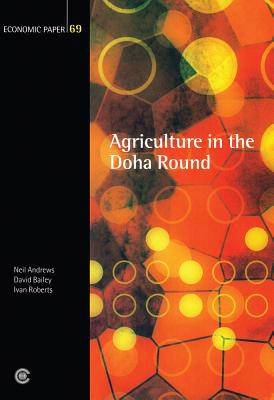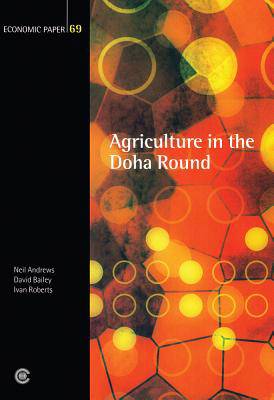
Bedankt voor het vertrouwen het afgelopen jaar! Om jou te bedanken bieden we GRATIS verzending (in België) aan op alles gedurende de hele maand januari.
- Afhalen na 1 uur in een winkel met voorraad
- In januari gratis thuislevering in België
- Ruim aanbod met 7 miljoen producten
Bedankt voor het vertrouwen het afgelopen jaar! Om jou te bedanken bieden we GRATIS verzending (in België) aan op alles gedurende de hele maand januari.
- Afhalen na 1 uur in een winkel met voorraad
- In januari gratis thuislevering in België
- Ruim aanbod met 7 miljoen producten
Zoeken
Omschrijving
In 2003 the WTO Ministerial Meeting at Cancun failed to achieve any significant progress on the liberalisation of agricultural markets in developed or developing countries. If the present round of negotiations is to be successful, it must continue the momentum for reform achieved through the Uruguay Round. Agricultural liberalisation has the potential to deliver significantly improved welfare in both developed and developing countries. This report, prepared for the Commonwealth Secretariat by the Australian Bureau of Agriculture and Resource Economics, looks at the benefits of liberalisation and examines the closely interrelated use of the three pillars of domestic support, export subsidies and restrictions on market access in distorting world agricultural trade. It outlines the negotiating positions of the key players, and suggests possible areas for compromise and concessions in an attempt to drive forward reform crucial to a successful outcome.
Specificaties
Betrokkenen
- Auteur(s):
- Uitgeverij:
Inhoud
- Aantal bladzijden:
- 60
- Taal:
- Engels
- Reeks:
- Reeksnummer:
- nr. 68
Eigenschappen
- Productcode (EAN):
- 9780850928129
- Verschijningsdatum:
- 1/01/2004
- Uitvoering:
- Paperback
- Formaat:
- Trade paperback (VS)
- Afmetingen:
- 167 mm x 240 mm
- Gewicht:
- 163 g

Alleen bij Standaard Boekhandel
+ 254 punten op je klantenkaart van Standaard Boekhandel
Beoordelingen
We publiceren alleen reviews die voldoen aan de voorwaarden voor reviews. Bekijk onze voorwaarden voor reviews.









